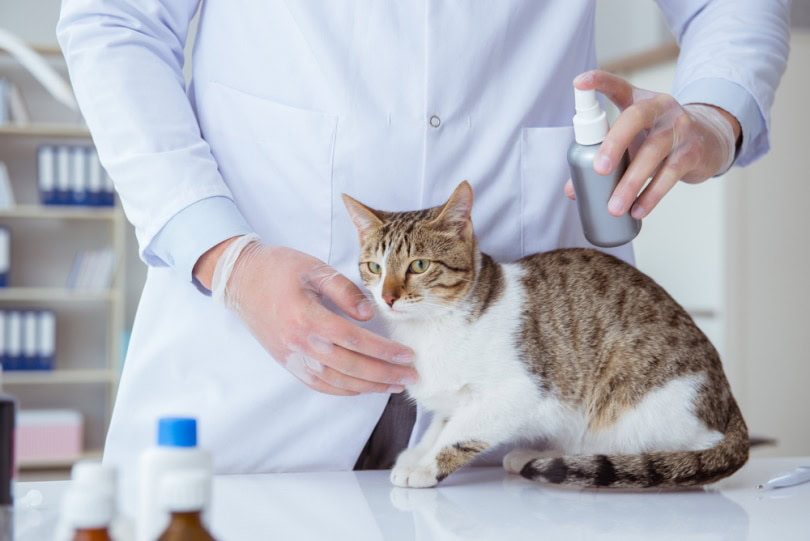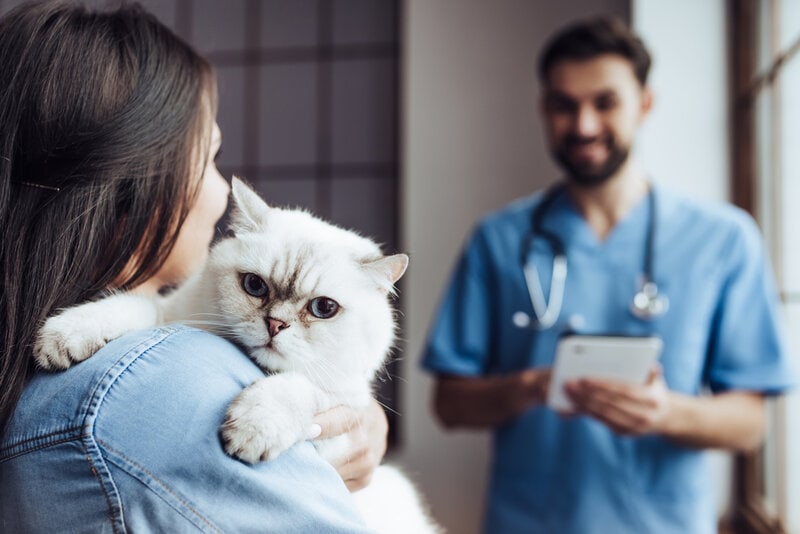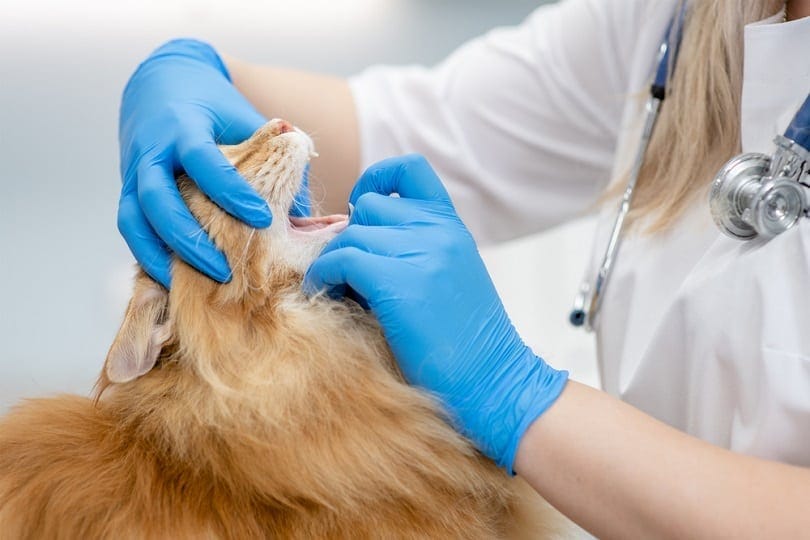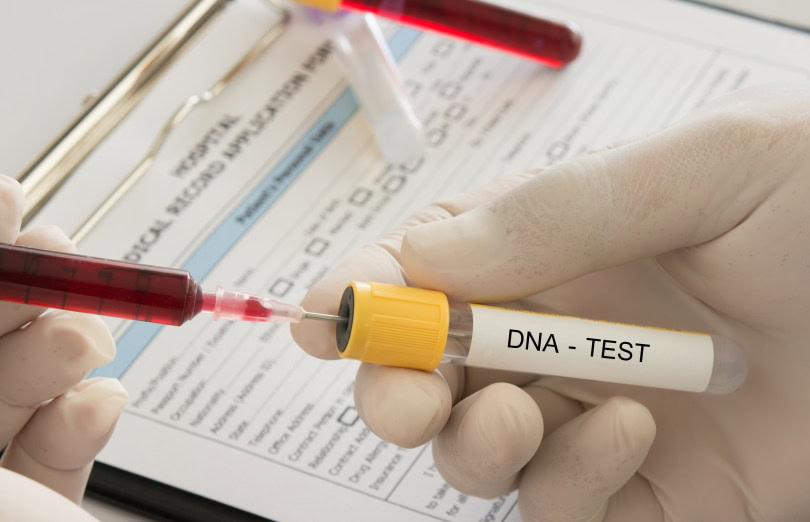VET APPROVED

The information is current and up-to-date in accordance with the latest veterinarian research.
Learn more »Click to Skip Ahead
If you adopted or bought a cat from a mixed litter, you’re likely curious as to what breeds are in their DNA. Or you perhaps might want to know more information, like predisposition for certain health conditions, blood type, and more. After all, you probably want to learn as much as you possibly can about your best pal.
Thanks to science, we can now use both professional and over-the-counter DNA tests to find out more information about our kitties, but maybe not in the way you expect. As a general answer, Cat DNA tests do not always meet our expectations due to the lack of consistency between different laboratories and a small available feline breed database, when compared to canine breed databases. The results will also vary greatly depending on the laboratory. If you’re curious to know your cat’s backstory, here’s what you can expect from the DNA accuracy of these tests.

What Are Cat DNA Tests?
DNA stands for deoxyribonucleic acid. This acid, or DNA, contains a genetic code that contains all the information about each living organism. DNA tests explore these different informational units, trying to reveal collectible data.
Like the name might imply, cat DNA tests are very similar to those for humans. All tests, regardless of brand, require a DNA sample from the person or animal and a question for further evaluation. The samples are analyzed in the lab, showing information about that individual.

How Do Cat DNA Tests Work?
With an increase in demand, different companies are beginning or continuing to develop DNA tests for felines that look into the genetic code. While they haven’t been in the making quite as long as those for canines, science is advancing rapidly.
If you purchase a cat DNA test, you might want to know how they work and how brand influences testing. Luckily, no matter what kind of DNA test you choose for your cat, the process should be virtually the same.
When you receive the test in the mail, you will follow the instructions listed closely for that specific product to collect your cat’s DNA. It typically involves swabbing your cat’s mouth and gums and placing the sample in a protective enclosure provided.
However, some kits may require the use of fur or a blood sample taken at the vet’s, in case of more specific genetic testing, usually for certain health conditions. If you have a preference, familiarize yourself with the DNA test you’re considering before you commit to the purchase.
You then mail back the sample, and a laboratory will test it further. Once it is analyzed, it will show specific information about your cat. Your results are displayed for your viewing, adding to your cat’s ever-growing stash of keepsakes.
What Do Cat DNA Tests Show?
Results of DNA tests can hold different information depending on the brand of the test, so be sure to read labels thoroughly before purchase.
A common misconception, most cat DNA tests are not able to accurately reveal the exact breeds in your cat. Instead, they determine several breeds that have most likely contributed to the making of your own cat’s genetic makeup. However, this is highly dependent on the extent of the available database of feline breeds, where your own cat’s DNA sequences are compared to others.
- Predisposition to certain health conditions
- Genetic diversity
- Blood type
- Colors and coat types
Only some can narrow down a breed, but the results aren’t guaranteed.

How Accurate Are Cat DNA Tests?
The science of feline DNA tests is still new and improving. According to the ASPCA, these tests cannot be deemed totally accurate due to the lack of regulation. So, look for a brand with a sterling reputation and a satisfied customer base for optimal results.
As of now, there is no available data measurement for whether a test provides set-in-stone accuracy versus something else. As the market continues to develop, we may see the creation of comparative accuracy levels.

Where Can You Buy DNA Tests for Cats?
You can buy DNA tests online on different pet websites, including sites like Amazon and Chewy. You can also find these tests in certain pet stores. When you shop online, you can look up local results so you can see if you need to run to the store or start the shipping process.
- BasePaws—Health DNA
- Wisdom Panel—health, ancestry, breed, traits
- Orivet—Condition identification
- 5Strands—food intolerance testing, allergy testing, pet health
Are DNA Tests for Cats Affordable?
Ultimately, only you can decide by searching for feline DNA testing if it fits in your budget. But we think you can likely find one that works for you, even if it’s something you have to set aside a fund for.
Feline DNA tests can vary in cost depending on the quality of the tests and the complexity of the results. While you can buy DNA tests for relatively low costs, they might not work as well to ensure accurate and complete results that give you the information you seek. On the other hand, an expensive test isn’t a guarantee of accuracy.
Your best bet is to check with your veterinarian to determine which tests are worth your money. You can also check out reviews from real customers to see if they had success and what they found out.

Can Your Vet Determine Cat Breed?
If your main curiosity was cat breed to mimic results that we humans gather from ancestry data like 23 & Me, what are your options? Can your vet test in a lab to uncover the true breeds within your kitty?
If your cat has a pedigree, you can easily trace their lineage. If you have no supporting information, it can be a little more difficult. So, vets can never predict the breed of your cat with 100% certainty. They can, however, suggest DNA testing that is appropriate for what you’d like to know.
At most, your vet can make a basic guess from the physical traits of your cat by visually inspecting them.

Conclusion
If you are interested in cat DNA testing but need more answers, don’t be afraid to explore the subject in further detail from companies that provide the service. You can also talk with a vet about any recommendations they have to toss your way.
All in all, the science of cat DNA information is still developing. It’s so much fun to learn and explore the readily available data we have on our buddies.
Featured Image Credit: create jobs 51, Shutterstock











